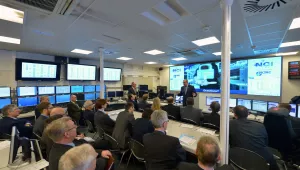
Simon Jones
Simon Jones is a technology and security professional. He is currently serving as Director of Information Security and Compliance for Massachusetts' Executive Office of Energy and Environmental Affairs. Simon is also a Non-Resident Fellow with the Belfer Center's Defending Digital Democracy Project, and is supporting the Cyber Power Index.
Prior to this, Simon led the Commonwealth of Massachusetts' digital identity and access management program. He also held various positions within the British Civil Service, including most recently as Assistant Head of Euro-Atlantic Security within the joint Ministry of Defense and Foreign Office policy unit. Simon also held positions within the Ministry of Defense covering topics including: reponding to domestic civil emergencies and counter-terrorism incidents; submarine, space, and nuclear procurement; and conventional arms controls.
Simon holds a Bachelor's Degree in Politics with International Relations from the University of Bath, and a Mid-Career Master's Degree in Public Administration from the Harvard Kennedy School.
-
Former Non-Resident Fellow, Defending Digital Democracy Project




